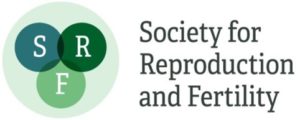Early Career, Big Impact: What I learnt at Fertility 2025
By Dr. Rohit Gautam
Author Bio: Dr. Rohit Gautam is working as a Project Scientist at the Indian Council of Medical Research (ICMR), India. He is currently involved in a multicentric trial on Polycystic Ovary Syndrome (PCOS). He completed his bachelor’s degree in Life Sciences from Sri Venkateswara College (University of Delhi) and M.Sc. in Biochemistry from Jamia Hamdard University, culminating in a Ph.D. from the School of Environmental Sciences, JNU, New Delhi. His research focuses on reproductive biology, radiation biology, and environmental toxicology.
I believed that my academic journey had been enriching, but one of the most significant moments of my career came when I attended the Fertility-2025 conference. As my first international conference, I was both excited and a little nervous. However, the experience turned out to be incredibly rewarding. The conference brought together renowned experts in reproductive sciences, providing an invaluable platform to learn about the latest research, engage in scientific discussions, and gain new insights. I also had the opportunity to present my research, interact with brilliant minds, and receive valuable feedback from experts. I was amazed at the breadth of topics covered, including assisted reproductive technologies, reproductive toxicology, PCOS, and the application of artificial intelligence in reproductive healthcare. These discussions broadened my understanding of current advancements in the field.
One of the most valuable aspects of the conference was the Early Career Workshop organized by the Society for Reproduction and Fertility (SRF). This session was instrumental in helping me connect with researchers, students, and fellows worldwide who are engaged in similar research. Moreover, the networking opportunities were invaluable in fostering potential collaborations. Importantly, the insights I gained into manuscript writing skills will stay with me and be incredibly beneficial for my future research and early career as a reviewer. Another particularly inspiring part of the conference was the “Meet Your Mentor” session, where I had the privilege of interacting with Professor Rod Mitchell and other eminent professors. Their guidance on career progression and future research directions was insightful and motivating. Given the highly competitive academic environment, securing an Assistant Professor position in India or abroad is challenging. The mentorship I received helped me better understand the necessary steps to advance in academia and research.
Attending an international conference comes with financial challenges, particularly for contractual researchers from developing countries. I sincerely appreciate the bursary support provided by the SRF, which significantly helped in covering my expenses. This support allowed me to focus on my research presentation and professional growth without the burden of financial stress. Over the course of three days, I learned so much about current research, international collaborations, grant opportunities, and career development programs. Opportunities like these are crucial for young researchers in India, making international participation possible and meaningful. The opportunity to interact with global researchers at Fertility-2025 has broadened my perspective, paving the way for potential collaborations and future interdisciplinary studies.
Lastly, I must mention the Fertility-2025 conference application. I was immediately impressed by its ability to streamline networking and provide real-time access to detailed program schedules and updates. Equally impressive was Kubify – the Learning Toolbox – which simplified the process of creating and refining our e-posters for the conference. This platform offered creative enhancements, adding a unique dimension to my learning and overall engagement at the event. Not only did it make poster preparation more intuitive, but it also represented a step forward toward greater sustainability.
Moving forward, I aim to apply the knowledge gained to my ongoing work in optimizing therapeutic approaches for PCOS and reproductive health. Additionally, I plan to utilize these insights to mentor young researchers and contribute to scientific advancements in India. I am deeply grateful to the Society for Reproduction and Fertility (SRF) for their generous support, which made my participation possible. Their encouragement for early-career researchers like me is invaluable in shaping the future of reproductive science.

